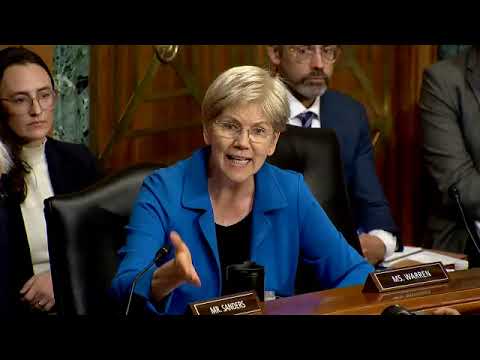In a heated exchange during a recent congressional hearing, Senator Elizabeth Warren confronted Robert F. Kennedy Jr., the newly appointed Secretary of Health and Human Services, over his inconsistent statements regarding COVID vaccine access. The debate, which has since garnered significant attention online, unveiled a clash over public health policy and the politicization of vaccine distribution amidst the continuing pandemic.
At the heart of the confrontation were Kennedy’s prior assurances that no one would be denied access to vaccines. Last November, he unequivocally stated, “If vaccines are working for somebody, I’m not going to take them away. No exceptions, no ifs, ands, or buts.” However, last week, he announced that the COVID vaccine is no longer approved for healthy individuals under the age of 65, casting doubt on the validity of his earlier claims. During the questioning, Warren challenged him to clarify this apparent contradiction and demanded unequivocal answers.
In the exchange, Warren pressed Kennedy on whether all adults and children over six months of age are eligible for a COVID booster shot at local pharmacies. Kennedy’s replies were muddled, stating that anyone could get the booster, but then clarifying that it is “not recommended for healthy people.” This distinction led Warren to argue that his lack of recommendation could effectively block access to vaccines for many Americans, as insurance companies may refuse to cover the costs associated with those deemed “not recommended.”
The implications of this discussion are far-reaching, as vaccine accessibility remains a contentious issue in the U.S. Following the CDC’s previous recommendations, vaccination rates increased significantly, showcasing the critical role public health messaging plays in combatting illnesses. However, recent reports indicate that vaccine hesitancy and confusion about eligibility continue to hinder progress.
Warren pointedly remarked on the consequences of Kennedy’s approach on public trust and health outcomes, asserting, “You are effectively denying people vaccines.” The senator’s demand for Kennedy’s resignation emphasizes the political pressure surrounding public health decisions. This confrontation may mark a pivotal moment in the ongoing debate over COVID vaccinations amid a backdrop of mixed messages from various authorities.
As the pandemic continues to evolve, ensuring clear communication about vaccine availability and recommendations is vital. The exchange between Warren and Kennedy has brought to light the potential pitfalls of political appointments in critical public health roles. Critics of Kennedy’s appointment have long warned about his past anti-vaccine rhetoric, complicating his ability to effectively serve in a position that demands trust and transparency.
Moving forward, the Biden administration and health officials must navigate these challenging waters carefully. The public’s confidence in vaccines is essential as health experts warn of potential future COVID surges and other variants. The call for resignations, such as Warren’s, suggests a deep-rooted concern within Congress regarding the direction of public health policy under Kennedy’s leadership.
This recent episode serves as a reminder of how intertwined politics and public health have become, particularly in the face of an ongoing global pandemic. As stakeholders from both sides of the aisle debate these critical issues, the implications for Americans seeking access to healthcare, particularly vaccines, remain paramount.



